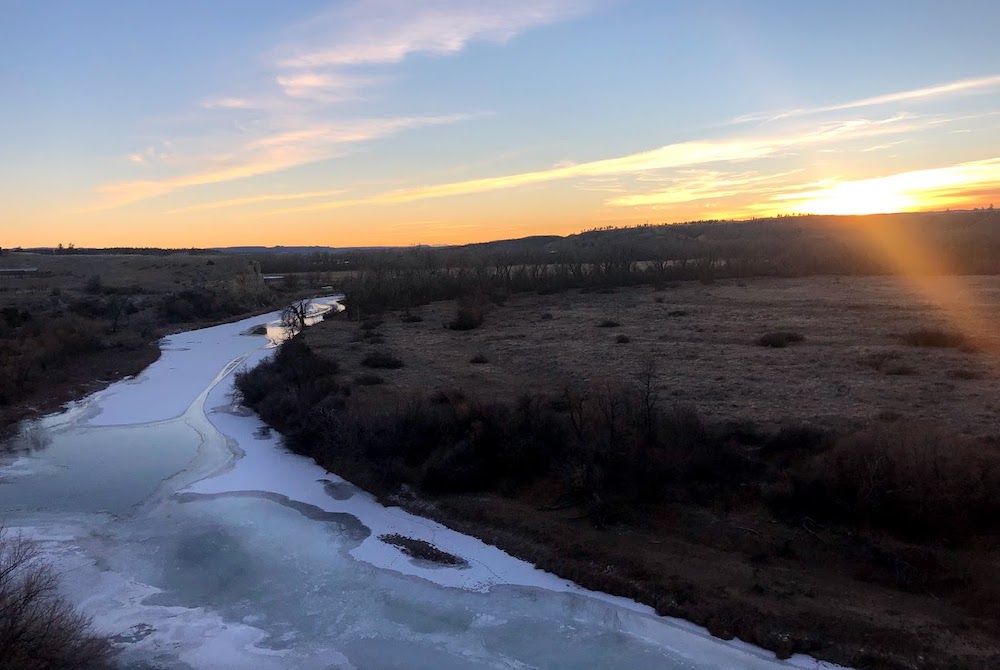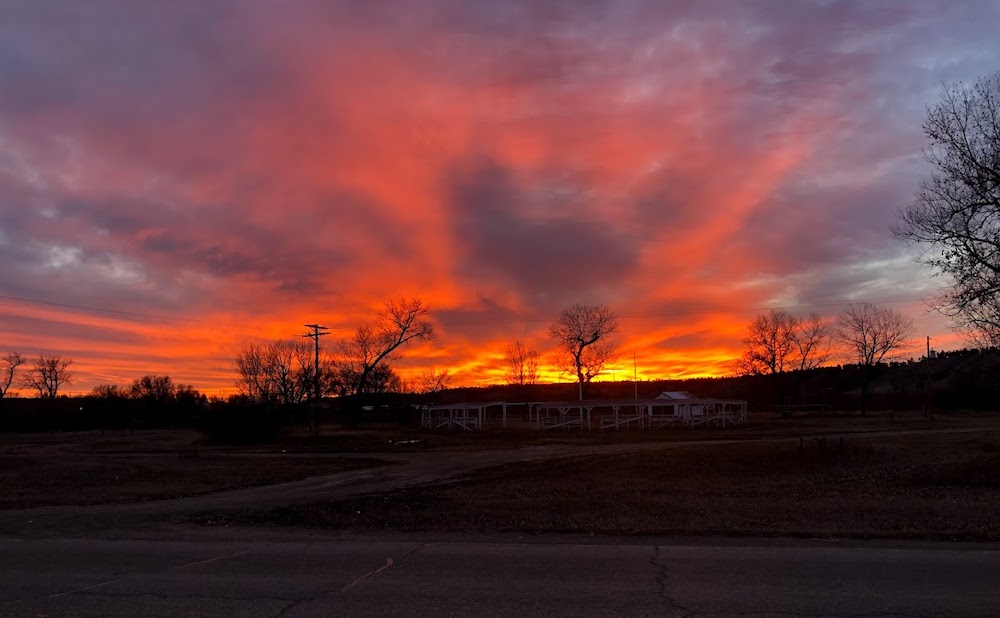
When everything is a reason to be grateful, nothing ever truly belongs to us alone. This boundless and abundant generosity arises not out from obligation, but out of the acknowledgment that because everything is touched by the Creator, nothing is ever truly owned for oneself. (Claire Lucas)
When I was an undergraduate student studying theology and psychology, I became somewhat obsessed with the Catholic sacramental imagination. The sacramental imagination holds that God is always already present as we move about the world and in each moment of our day-to-day lives.
This understanding is connected to the theology of the incarnation: God is here, with us, in the world and in our personal and public lives, which are broken and painful and always teeming with seemingly unending complexity. God never fails to meet us where we are.
Creation bursts forth with evidence of God's unending love in subtle and apparent ways. This is empowering and affirming, insisting that the more we pay attention to the Sacred in our very midst, the closer we grow to God. The demand of the sacramental imagination is a grounded attentiveness that became central to my own theological anthropology.
After graduating from my undergraduate program, I moved away from my home in the Pacific Northwest to rural Montana to begin working as a caregiver for Native American elders. These elders have become friends and mentors, while I have had the opportunity to care for them and get to know them.
I have always been interested in how they describe God and how they interact with the Sacred in their own ways, often influenced by both traditional and Christian practices. Many of them, when describing their prayer, talk about praying for "the people" almost as a litany.
Advertisement
Their prayer is abundant, and there is nothing that their prayer does not cover. Nothing is beyond the reach of blessing and intention. Nothing is ever out of the reach of the Holy One.
One elder spoke of praying early in the morning, as the sun rose on his porch facing the hills that cup the river valley that holds our tiny community. He would describe how he would ask for blessing and healing for those hurting and relief for their suffering, and still be praying in gratitude for all he has been given.
He would tell me, even amid the stress of quarantine and isolation because of COVID-19, that he had prayed for all of the staff at our small assisted-living facility by name. He prayed for each of us and for our families and for all the other residents and for his countless relatives and their relatives and their relatives beyond that.
One morning he surprised me when he asked me how my mom, at home in Oregon, was doing. As he was praying that morning, he said, he thought of my family. He always encouraged me to pray in this way, as well — to pray as if I actually trusted that God permeates and touches everything, that nothing is ever out of God's reach.
This elder and the others have shown me that everything is always worth giving thanks for. It is all always worth prayer. When everything is a reason to be grateful, nothing ever truly belongs to us alone. This boundless and abundant generosity arises not out from obligation, but out of the acknowledgment that because everything is touched by the Creator, nothing is ever truly owned for oneself.
This abundant generosity has challenged me. My own commitment to the sacramental imagination, and the influence it's had on my own spirituality, is still influenced by the place where I truly came to understand it: within an academic institution in an American and primarily white, educated and privileged context.
This context sends implicit messages telling me that my personal success, and the new knowledge or understanding or insights I can gain for myself, are of utmost importance, rather than how a new understanding can instead benefit or connect me to others.
When I prioritize my own personal knowledge, insight or even comfort, I am blind to the abundance God offers in my life and in all of creation.

One elder spoke of praying early in the morning, as the sun rose on his porch facing the hills that cup the river valley that holds our tiny community. (Clarie Lucas)
The elders show me that even amid constant complexity and suffering, the world, and especially the natural world, is good, just because it is, not because of what can be extracted from it for individual gain. Consumerism, environmental degradation and individualism are assaults on the abundant generosity that is so integral to how the elders have always understood the world and who each of us is made to be.
This very message is embodied by countless Indigenous activists and leaders like those at the 2016 #noDAPL protests against the Dakota Access Pipeline, and last summer's protests at Mount Rushmore against then-President Donald Trump's defamation of the Sacred Black Hills.
These leaders and activists defending the land that was stolen from their ancestors proclaim loudly that the land and all that is in it is good because it is, not because of what can be taken from it or because of what it can produce.
At its best, the sacramental imagination allows each of us to see the constant abundance God offers in the world, allowing us to acknowledge God's unending love for us and to trust that our encounters, both mundane and profound, can point to a greater love that connects us to one another.
When co-opted by consumerist, individualist and White supremacist culture, however, it is so easy to lose sight of this.
The elders I work with remind me that an awareness of God in my life and in all Creation is never for myself alone. Instead, I can let this awareness and attentiveness to the Holy One animate me to be in awe, rather than to pursue individual recognition, knowledge or success.
Environmental justice is deeply connected to context and to listening to the place where we're embodied. It is far past time to let the abundance spill over us and move us toward embodied environmental activism, rather than being motivated by our own individual goals and desires.




